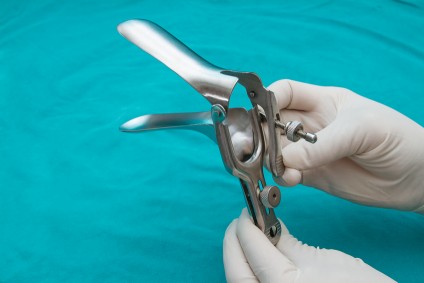The mainstream media is filled with reports that pelvic exams are no longer necessary in the wake of a draft recommendation by the United States Preventive Services Task Force (USPSTF).
Here’s How StatNews reported the findings:
Millions of healthy women undergo routine pelvic exams every year, but on Tuesday a panel of physicians and other medical experts cast doubt on this longstanding pillar of women’s preventive health care.
But that’s NOT what the task force actually advised. The USPSTF advised discontinuing SCREENING BIMANUAL EXAMS, not pelvic exams.
[pullquote align=”right” cite=”” link=”” color=”” class=”” size=””]The mainstream media has reported the story inaccurately and women may die as a result.[/pullquote]
In order to understand the recommendations, you need to understand what a pelvic exam is.
A pelvic exam contains TWO parts, the speculum exam and the bimanual exam.
The speculum exam involves inserting a metal or plastic speculum in the vagina to push back the vaginal walls and allow the cervix (which is at the end of the vagina) to be seen. The provider can then perform a Pap smear, scraping off cells for examination under the microscope in order to detect cancer and precancerous lesions.
The bimanual (two hands) exam is performed after the speculum exam. Two fingers of the provider’s dominant hand are inserted into the vagina and the other hand is placed on the lower abdomen. The fingers and hand are brought together to feel the uterus, cervix and ovaries between them.
Routine speculum exams are STILL recommended.
Bimanual exams are STILL recommended for any woman with a complaint of pain, vaginal discharge and a variety of other symptoms.
The ONLY thing that the USPSTF recommends discontinuing is SCREENING bimanual exams (when a woman has no GYN symptoms of any kind) to detect POTENTIAL problems. The bimanual exam is a poor screening test because it has a high false positive rate leading to unnecessary ultrasounds and other tests.
No one should think that this means women should avoid the gynecologists or forego speculum exams and Pap smears. The HPV vaccine may ultimately render them unnecessary by preventing cervical cancer and precancerous lesions, but that hasn’t happened yet.
Women STILL need routine gynecological exams including speculum exams!
Women with GYN symptoms STILL need complete pelvic exams including bimanual exams!
As the StatNews piece notes:
Its conclusion applies only to women who are not pregnant and who do not have pelvic symptoms, such as pain or unusual bleeding. It gave the pelvic exam a grade of “I,” for “indeterminate,” meaning “we don’t have enough evidence to determine the benefits and harms,” said task force member Dr. Maureen Phipps, professor of obstetrics and gynecology at the Warren Alpert Medical School of Brown University and chief of OB-GYN at Women & Infants Hospital of Rhode Island…
The recommendation is unrelated to screening for cervical cancer, which the task force highly recommends. But that can be done without a pelvic exam, an internal and external inspection by sight and touch.
But even then it doesn’t get the terminology correct.
The last line particularly egregious:
ACOG said its current position is not dictated by financial considerations. But if women opt out of pelvic exams, many might visit a gynecologist less often. And if gynecologists do not bill for a pelvic exam and the follow-up it often triggers, their incomes would decline.
But the genesis of the routine pelvic exam is not in obstetrics but in public health. Many routine screening tests (like mammograms) were recommended by public health officials because cancer was imagined to be like infectious disease: early diagnosis would be much more likely to lead to a cure. But cancer is not like infectious disease in that it can spread and become incurable long before the patient has any symptoms. Everyone who has metastatic cancer at one point had a tiny early cancer, BUT not everyone who has an early small cancer will ultimately develop metastatic cancer. The cancer may grow so slowly that the patient dies of another cause first or the body’s immune defenses recognize the tiny cancer and remove it.
Routine bimanual exams were never a plot to make money. They were thought to be the only way to detect early ovarian cancer. Early ovarian cancer is potentially curable and advanced ovarian cancer is almost never curable. Moreover, early ovarian cancer almost never causes symptoms and symptomatic ovarian cancer is almost always deadly. It seemed to make sense to perform routine bimanual exams. Experience has shown us that sadly it doesn’t work. In other words, since bimanual exams can’t diagnose early ovarian cancer, there’s no reason to perform them as a screening test.
But cervical cancer is a preventable disease. Screening PAP smears (and therefore speculum exams) are highly effective in diagnosing cervical cancer and precancer. Screening PAP smears save lives.
Tragically, the mainstream media has reported the story inaccurately and women may die as a result.


